Jaroslav Vojta
Nascimento : 1888-12-27, Kutná Hora, Austria-Hungary [now Czech Republic]
Morte : 1970-04-20

Self

Self (uncredited)
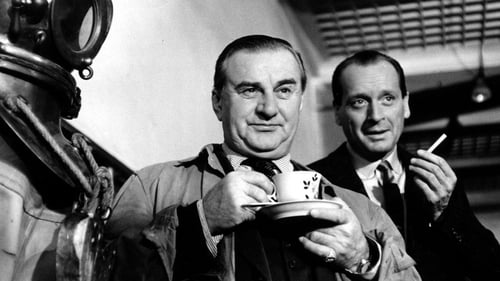
hluchoněmý rybář Lebeda
Miss Nováková reports to Major Tuma (Karel Höger) from the police about the disappearance of her roommate, the model Zuzana. Shortly afterwards, a film director named Konrád (Otomar Krejca) asks Tuma to cooperate on a new cinéma-vérité film describing the story of Zuzana's disappearance.

Oldřich Musil

Wandering through the forest, a woodcutter finds a golden fern whose seed turns into a beautiful woman - they fall in love. After getting drunk in a village feast, he gets to sign up to the army. The fairy gives him a shirt to wear and asks him to swear he will never abandon it. At the war front, he falls in love with the the colonel's daughter and will have to perform various feats to get her attention.


Mayor
Based on a novel by Maria Majerova, this well-photographed but routine romantic drama is directed and co-scripted by Vaclav Krska. Set in a more old-fashioned time, the story centers around Lenka (Suzana Fisarskova), a young woman with a domineering, psychologically abusive father. When Lenka falls in love she suffers the ultimate injustice when her father and her family forbid her to marry the man. They see no advantage in such a union and want her to marry a wealthy local landowner instead, for obvious reasons. But Lenka is not as submissive as they think and she runs away to the city to look for the man she loves -- only to find a serious problem, though a surmountable one, is waiting for her.

factory Smolík

member of the Tham Theater

Polácek - suitor
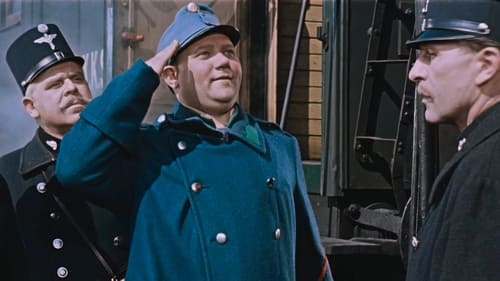
starý ovčák
A comedy based on the novel of Jaroslav Hašek's The Good Soldier Svejk happens during the World War I. I Dutifully Report: In the introduction to the second part of the film adaptation of Hašek's novel The Good Soldier Švějk presents his main character Josef Švejk. With the distinctive traditional Czech cartoon character of a soldier Svejk, this time you meet on the way to the front and eventually right in the firing line. You can look at his famous train events, and also probably the most famous episode of the novel, Švejk's Budějovice anabasis. Don't miss the scene with the secretly bought cognac, the episode with Svejk as a fake Russian prisoner of war, including the court scene, and the scene in which lieutenant Dub is caught in a brothel. Despite the criticism, Steklý's adaptation is undoubtedly the most famous and memorable at present.

Havrda

Simon
After the battle of Sudoměř the Hussite teaching spreads through the whole country and people start leaving their homes to help build the fortification of Tábor. Prague citizens request help against the army of Zikmund. The Hussite army with Jan Žižka in the lead make their way towards Prague. They fortify themselves on the mountain Vítkov and engage in a bloody battle with Zikmund’s huge army.

Good-natured and garrulous, Švejk becomes the Austrian army's most loyal Czech soldier when he is called up on the outbreak of World War I -- although his bumbling attempts to get to the front serve only to prevent him from reaching it. Playing cards and getting drunk, he uses all his cunning and genial subterfuge to deal with the police, clergy, and officers who chivy him toward battle.

loupežník Sarka Farka

Head forester

Self

Sádek

Joha - Baker
The second part of the revolutionary Hussite trilogy takes place in the years 1419-1420.
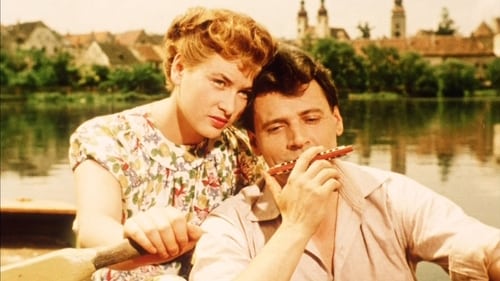
Předseda JZD

Dog's Heads (Czech: Psohlavci) is a 1955 Czech drama film directed by Martin Frič, based on the novel of the same name by Alois Jirásek. It was entered into the 1955 Cannes Film Festival.
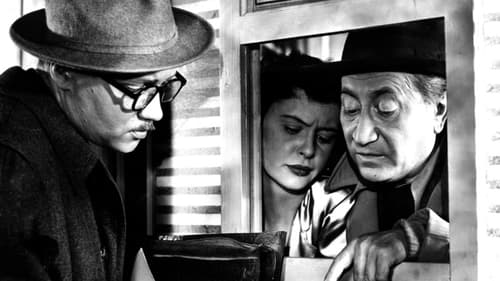
Voráček
A few bus-loads of holidaymakers from the agricultural cooperative on a day trip arrive to see the show at the Slavia Circus. But, they have bad luck. It is Monday, the day on which the employees have their extra day off.

Chairman of the MNV Alois Plavec
Director: Vaclav Gajer

Old comedian
Komedianti is a 1954 Czech film directed by Vladimír Vlcek. It was entered into the 1954 Cannes Film Festival.

Self

Alois' Father
Early Days follows the early life of famous Czech writer Alois Jirásek. Jirásek had already developed his own view of the history of the Czech nation while he was at grammar school in Broumov. When he becomes the supply teach in Litomyšl, he has already written his first book and a number of poems. The local dignitaries await the arrival of the young writer in excited anticipation. Jirásek, however, is sickened by the empty patriotism from the depths of his soul and soon becomes disagreeable to the notables. The district sheriff tries to remove Jirásek from the school and drive him out of town. Unable to do this, the sheriff appoints a pro-Austrian headmaster who attempts to sabotage Jirásek. The students stand behind Jirásek , however, and discontent is not only felt in Litomyšl but throughout Bohemia.

Pazourek

Drábek

Ocílka

kněz
This is a romantic story about a brave, self-made girl, despised daughter of a shepherd. She is not afraid of anything - neither night nor swimming. But the superstitious villagers are telling weird stories about her and about all sorts of strange things, even her conjunction with the powers of hell.

Kabrna

Konečný

Five crime stories connected by the narration of police superintendent Bartosek.
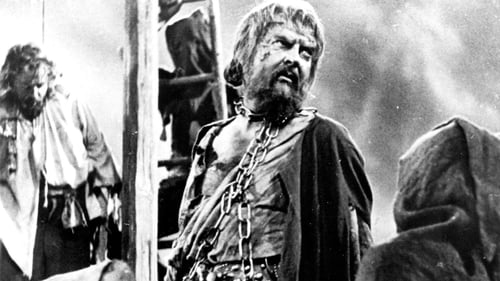
husitský bojovník Baba
Czech history movie.

At the end of the First World War, Nikola Shuhai and his friend from the army desert. On the way home, to the village of Kolochava, they both find refuge with baby Jaga. Jaga mixes them a drink to protect them from the deadly bullets. The bachelors must promise to marry her daughters in exchange for a drink, or they will be punished. Nikola finds his home village in poverty. He stands against the powerful and the rich, and they turn the gendarmes against him. Nikola hides from them in the woods, where he will remain even after the end of the war, because nothing has changed for the villagers. Out of poverty and hopelessness, other men join Nikola and together they raid the wealthy. Nikola distributes the obtained booty to the poor and needy, who see him as their protector and hero.

Matěj
Shown in Cannes 1946.

Vavruš Cagala

továrník Ficek

Bezoušek

Nezmara

Antonín Topinka

Josef Kalina

revírník
Ríša, a student of law, neglects his studies in favour of parties and pranks. His angry father refuses to continue helping him out of his debts. Ríša, however, is not entirely beyond hope. He decides to go and stay for a while with his uncle, a priest, who lives in Moravia, in order to prepare for his exams. He meets Helenka, the timid daughter of the local gamekeeper, at a village ball and is enchanted by her. The days pass and their idyllic relationship begins to tire Ríša. He begins to tell Helenka about his former debauched life the about the broken hearts of beautiful women. Helenka is hurt and refuses to see Ríša anymore. His uncle, the priest, is incensed at his behaviour and orders his nephew out of the house. Ríša tries desperately to find Helenka so he can make it up to her.

Vácslav Čermák

Narrator (voice)

dělník
Venice Film Festival 1940

Otradovec
When Vilem appears in the road with an unconscious young woman, it disturbs the peaceful life of three generations of the Balvínova family.

Podestát
Venice Film Festival 1939

Kuzma

Monk Bonifác
A morally questionable lord comes to the aid of a working class man who is to be executed for speaking out about thieving rich scoundrels sticking it to the poor.

rychtář

Jakub Bušek

Juraj Hordubal
Venice Film Festival 1938
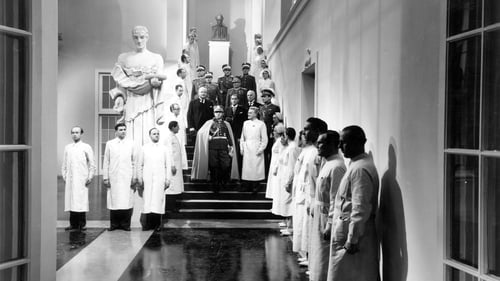
A Patient
The White Plague, a leprosy-like disease, ravages the world during a war. Based on a play by Karel Čapek.

Josef Doubrava

Pavelka

Jan Kalaš

Self
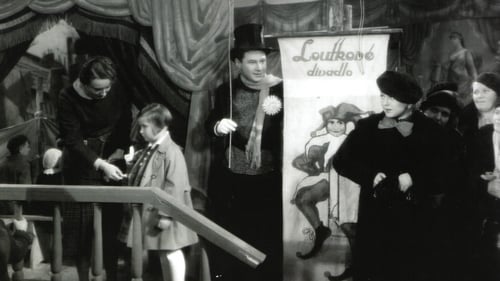
Kratochvíl

Filip Vávra

Holeček

starosta Adam
Curious citizens await the arrival of an important guest, the son of poacher, who became famous abroad. Begins celebration in his honor, but nobody knows that instead of the hero arrived cursory prisoner number 1313. He quickly understand how things are and decides to take the opportunity and very quickly gets into a new role.

švec Václav Šupita

Jan Sychra, father
The story of love, between a sturdy village boy and a gentle country girl, filmed with a movingly genuine charm.

Stehlík

Otto
A czech film that focuses on an unfaithful husband who married in to money, as well as an impoverished man who is turns to theft.

Dundr

Hátle
The owner of the ready-to-wear store, Mr. Richard Naceradec from Zizkov, is an enthusiastic fan of S.K. Slavia and despite his wife's opposition, he goes to football every Sunday. Tailor Emanuel Habásko lives alone with his adult son Eman. Widow Ouholicková chases Krejcí endlessly, but father Habásko bravely resists. Habásko do not recognize any other club except S.K. Viktoria. One day, Naceradec will face Eman at the match between Slavia and Viktoria.

The case of Colonel Redl -- an officer blackmailed into spying by virtue of his homosexuality.

St. Wenceslas (Czech: Svatý Václav) is a 1930 Czechoslovak historical film about Saint Wenceslas.[2] It was the most expensive Czech film to date,[3] with the largest set constructed in Europe to accommodate an all-star cast of over a hundred, together with 1,000 extras for the lavish battle scenes.

Braha
A Czechoslovakian comedy directed by Carl Lamac and starring himself Theodor Pistek & Anny Ondra.

Janosík, a friar retrained as a bandit, becomes the farmers' symbol of resistance and fight against the feudal conditions.






















